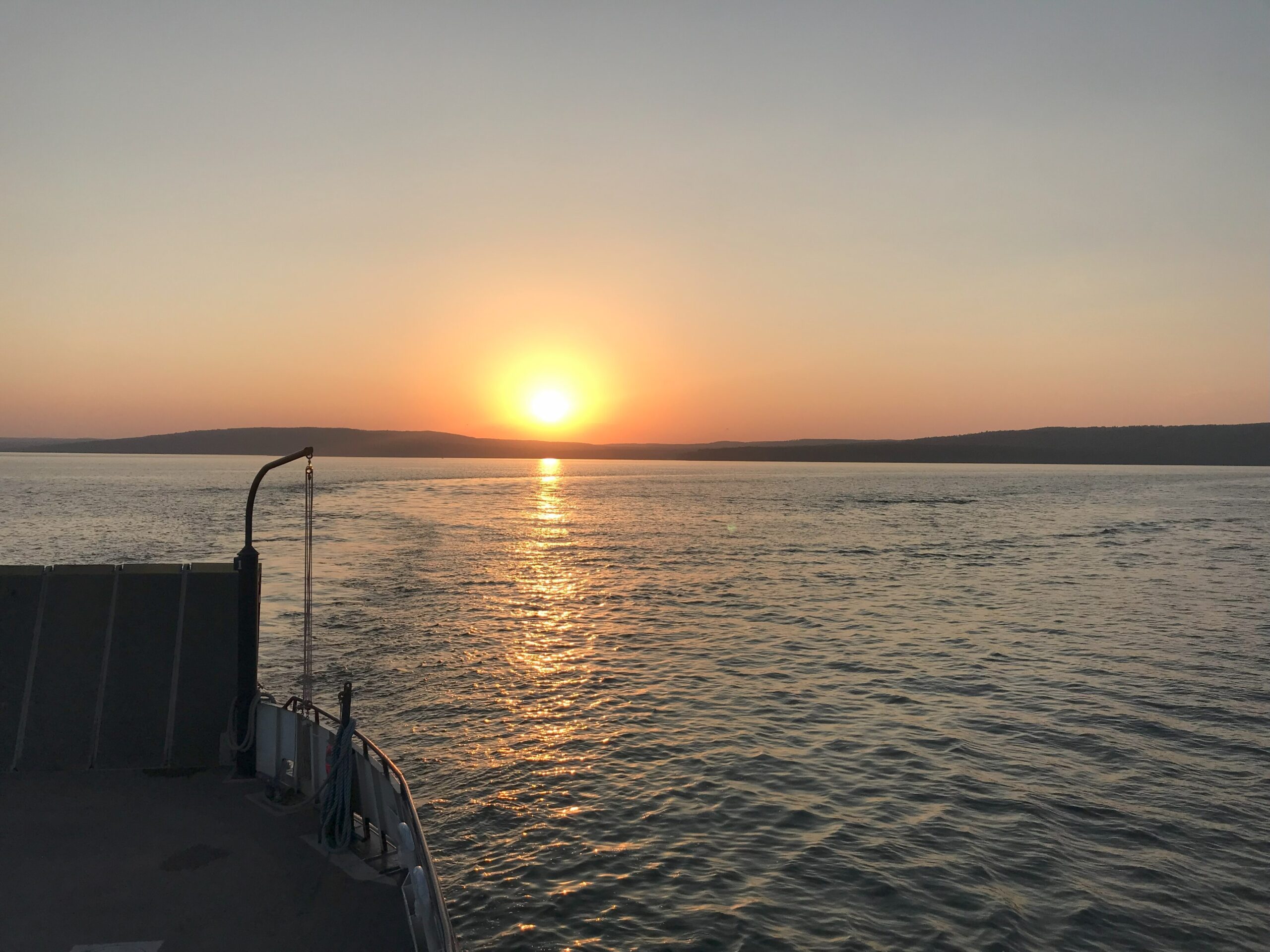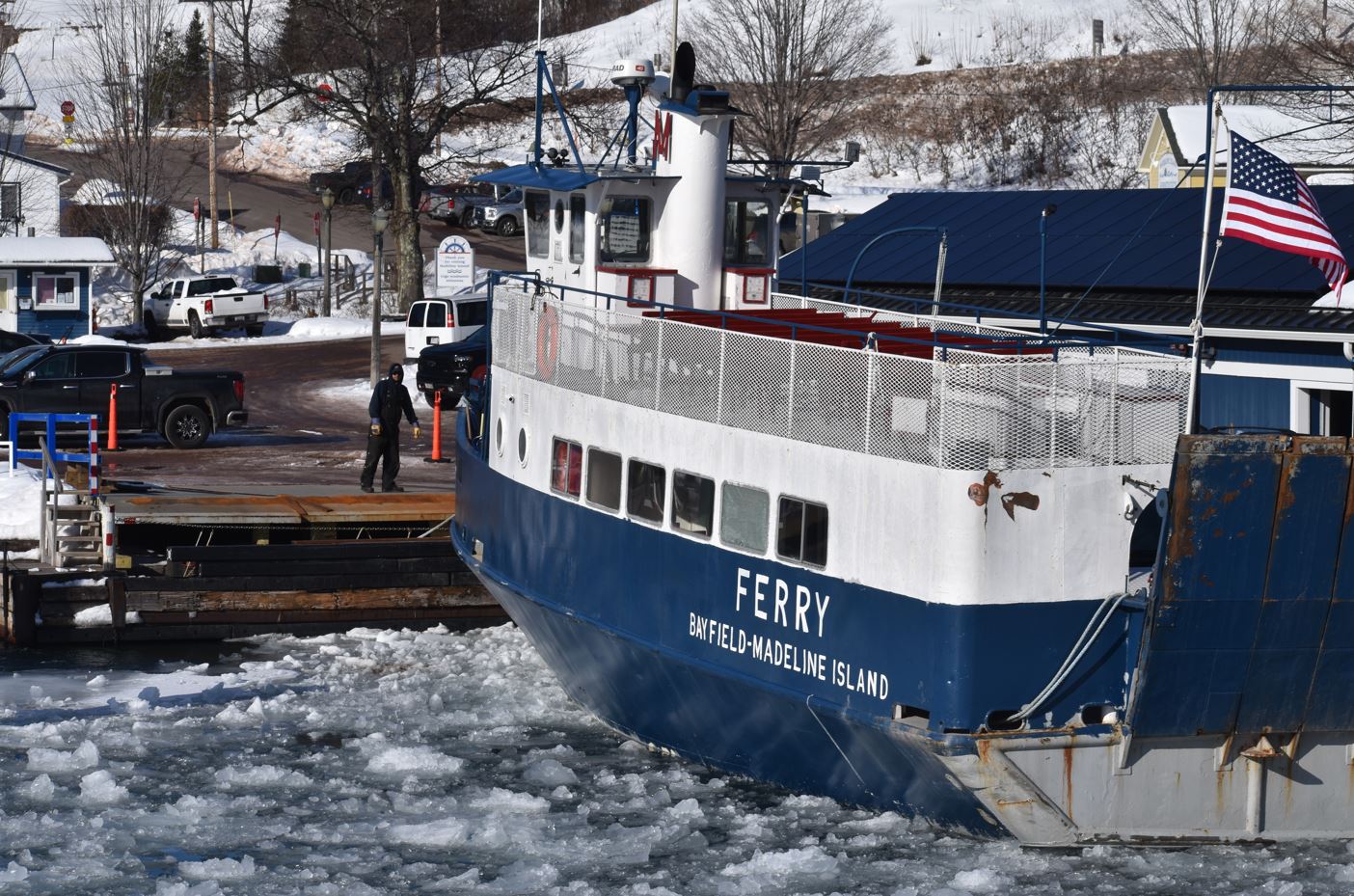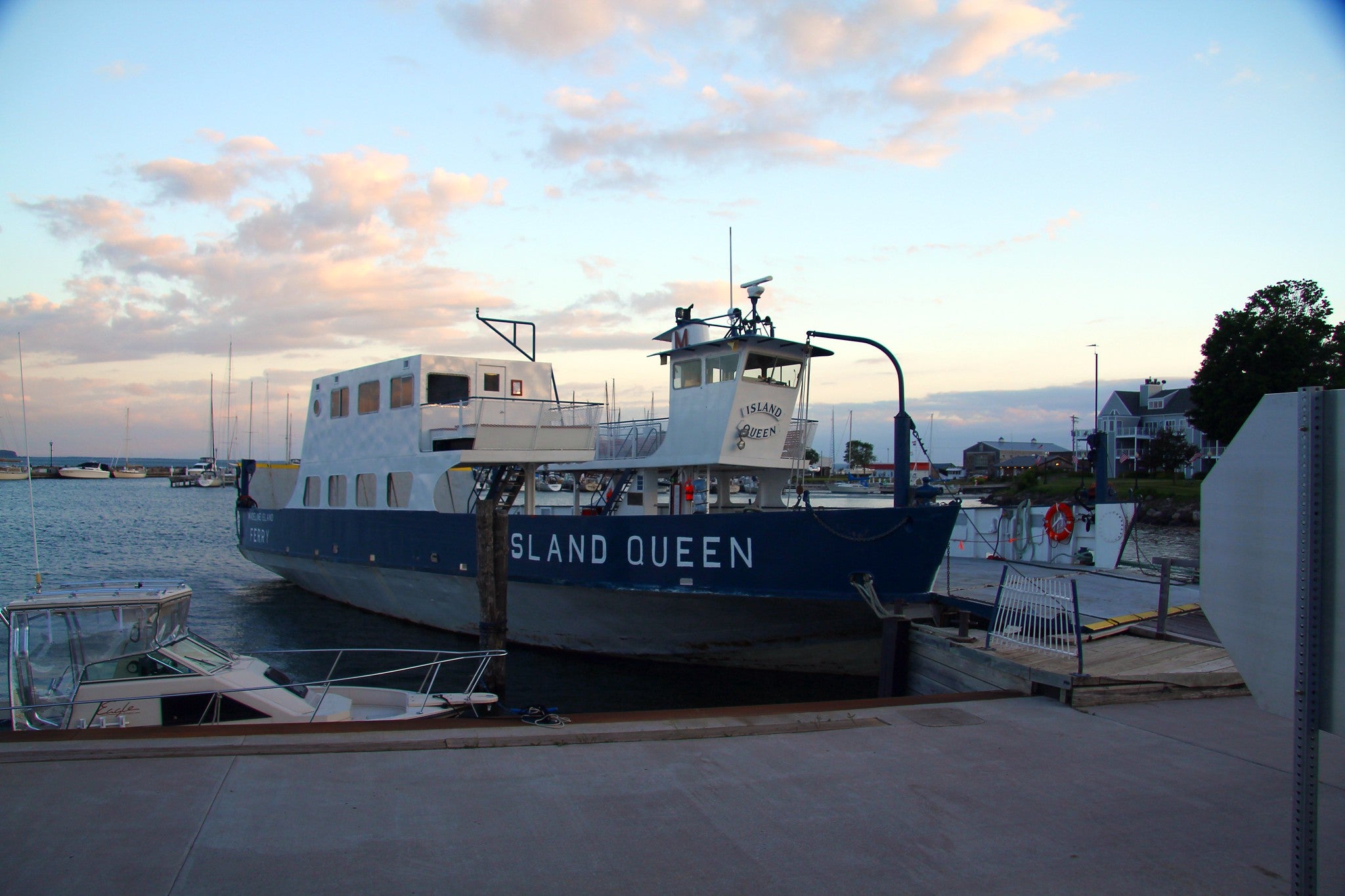A Lake Superior island town is the new owner of the ferries that connect Madeline Island residents to the mainland in northern Wisconsin.
The Town of La Pointe closed on the $17.3 million deal to purchase the Madeline Island Ferry Line’s assets from the former owners on March 28.
The Madeline Island Ferry Line has five boats that make nearly 6,000 crossings each year to bring people to Madeline Island from the mainland in Bayfield.
News with a little more humanity
WPR’s “Wisconsin Today” newsletter keeps you connected to the state you love without feeling overwhelmed. No paywall. No agenda. No corporate filter.
The island is a popular tourist draw for thousands of visitors during the summer, boosting La Pointe’s year-round population of about 430 residents.
Glenn Carlson, chair of the town board, said around 130,000 people make the round trip from the mainland to the island each year.
“To me, buying the ferry line was a critical part of keeping the island population sustainable,” Carlson said.
The Nelson and Russell families had owned and operated the ferry line since they merged into one company in 1970, according to Robin Trinko Russell, managing member of MIFL LLC. She said they will continue to operate the ferries under a four-year agreement with the town.
“It’s a win for the town and for the ferry line because we share the same values,” she said.
Trinko Russell said that includes prioritizing customer safety, service and preventive maintenance to keep vessels running. She said she will continue to work with the ferry line to ensure a smooth transition.
Michael Collins, a member of the town’s harbor commission, said the service provides certainty for people moving to and from the island.
“It’s the idea of being able to plan going forward, knowing that the operations and the governance of the ferry line is going to be operating in the people’s interest,” Collins said.

Town secures financing and raises ferry line rates
The town made the purchase through a mix of funding sources, including millions of dollars in loans from summer residents and the Board of Commissioners of Public Lands. It also secured around $10.8 million in revenue and general obligation bonds, which are a form of long-term borrowing used by state and local governments.
The financing is slated to be paid off within 20 to 30 years. Carlson said they’re not expecting to raise property taxes for residents as a result of the deal.
But the cost of a ferry trip is going to rise.
Carlson said the town board recently approved a 7 percent increase in the ferry line’s rates, which are expected to take effect in mid-May. The cost of a round-trip will increase from $17 to $18. For those taking vehicles across, the cost will increase from $29 to $31 for round-trip travel between the island and mainland.
For most island residents, rates won’t increase for those who use discount cards.
Debbie Knopf, a business owner and long-time resident, said the increased rates will mostly affect tourists or part-time residents. Knopf said she’s thrilled the town now owns the ferry line’s assets. She feared a private company may take over the service without regard for how it may affect those who live and work on the island.
“To know that it’s owned by local people who use it and rely on it, it truly is a part of what can make this island support the people who live here either during the summer or during the winter,” Knopf said. “It’s just an absolute necessity.”
She said the previous owners watched out for residents whether it was alerting them to changes in the schedule or aiding in times of a medical emergency. While things didn’t always run perfectly, Trinko Russell said they strived to treat others the way they would want to be treated. She said the sale is bittersweet.
“You’ve got boats that your father was around when you built them, or your uncle used to work here,” Trinko Russell said. “We have generations of families that have worked here.”

Officials explore opportunities to expand service
Town officials say they’re not making many changes to the schedule of runs between the island and mainland. They have applied for grants to expand service for kids who want to attend after-school programs on the mainland.
Carlson said middle and high school students attend school in Bayfield, and the current ferry schedule doesn’t operate long enough after Labor Day to accommodate those wishing to take part in activities or sports. He fears that could prompt some families to move to the mainland.
“And that’s not good for the island,” Carlson said.
The town is also exploring more ferry runs for visitors and residents who want to attend events like Big Top Chautauqua in Bayfield. It’s also applying for a federal grant to build an electric ferry, which is expected to cost around $30 million for the boat and infrastructure.
Zach Montagne, president of the town’s harbor commission, said the purchase ensures the town’s future.
“This will be a source of revenue for the town, which will help offset improvements and other infrastructure as well,” Montagne said.
The town expects to draw in around $5 million each year through the ferry line.
Wisconsin Public Radio, © Copyright 2025, Board of Regents of the University of Wisconsin System and Wisconsin Educational Communications Board.







